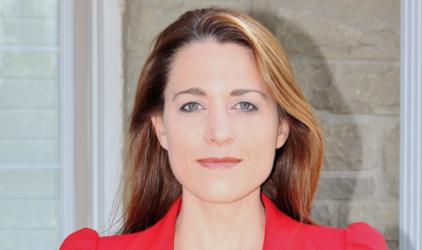History Education in the Name of Democracy (Kristina Llewellyn)

History education has the potential to democratize our understanding of the past and to shape our political consciousness. It is this potential that drew me to the work of THEN/HiER and its members. My research examines liberal/neoliberal conceptions of democracy in Canadian education past and present. I am speaking here of democracy as a social contract schools are charged with teaching and that presumes a common citizenship that transcends difference. History education provides the skills to unmask systemic inequalities that are cloaked by an egalitarian banner. ‘Doing history’ provides possibilities for reconceptualizing a more radical democracy, inclusive of flexible, pluralist citizenship.
 My book Democracy’s Angels: The Work of Women Teachers (McGill-Queen’s University Press, 2012) interrogates democracy as it was invoked for post-WWII schools. I argue that a liberal democratic project was successfully hegemonic during this period, because it provided a national defense against the uncertainties of the age. National togetherness was defined by a desired ‘norm’, namely, English, middle class, white, Protestant and heterosexual. The democratic social contract, as Carole Pateman’s work demonstrates, is based on a separate sphere ideology. The masculine is synonymous with the public. Women teachers were embraced as necessary participants in the ‘democratized’ public school of the postwar years due to a labour shortage, but only in so far as they could be deliverers of normative femininity. They were excluded from teaching rational, autonomous, orderly citizenship, which was considered the natural preserve of men. In the book, I detail through oral histories how women teachers negotiated this paradox, depending on their social positioning, by embodying and altering citizenship lessons through their powers of practice.
My book Democracy’s Angels: The Work of Women Teachers (McGill-Queen’s University Press, 2012) interrogates democracy as it was invoked for post-WWII schools. I argue that a liberal democratic project was successfully hegemonic during this period, because it provided a national defense against the uncertainties of the age. National togetherness was defined by a desired ‘norm’, namely, English, middle class, white, Protestant and heterosexual. The democratic social contract, as Carole Pateman’s work demonstrates, is based on a separate sphere ideology. The masculine is synonymous with the public. Women teachers were embraced as necessary participants in the ‘democratized’ public school of the postwar years due to a labour shortage, but only in so far as they could be deliverers of normative femininity. They were excluded from teaching rational, autonomous, orderly citizenship, which was considered the natural preserve of men. In the book, I detail through oral histories how women teachers negotiated this paradox, depending on their social positioning, by embodying and altering citizenship lessons through their powers of practice.
This work spurred my research on current conceptions of democracy and education in social studies. An analysis of curriculum guidelines reveals that colonial structures of masculinist citizenship persist – our neoliberal social order is exemplified by the rational (i.e. informed), autonomous individual who acts according to objective, universal principles that transcend private interests. For example, the democratic citizen is imagined as participating in nation-building, associated with parliamentarians who are overwhelmingly men, not with family-building, associated with women’s work in and outside of the home as caregivers. Furthermore, familial representations are reserved for the earlier grades and are almost non-existent by high school, replaced by and divorced from law, government, and the economy. This supports a hierarchical framework by which the study of issues associated with men requires more maturity, autonomy, and greater rationality. This framework provides an advantage to those who are perceived in possession of such qualities, strongly associated with dominant masculinities.
My current research seeks to understand how we can disrupt neoliberal models of learning. First, I am examining restorative approaches to social studies. At the core of a restorative approach is relationality or attentiveness to right relationships that allow for human flourishing. Presently, relationality is missing as an explicit objective within social studies. How might relational truth and judgement, and the principle of subsidiarity, inform our teaching of historical thinking? How would attention to a range of public and private relationships, beyond an ‘ethic of care,’ encourage alternate understandings of citizenship in our history? Second, I am considering the role of orality in history education. History courses in most provinces include oral histories within a list of primary sources, but there is a dearth of literature that seeks to understand how narratives, oral tradition, and life stories are connected to historical thinking. These projects strive to democratize history and education, that is, to write marginalized people into our teaching and learning and to help those marginalized to join a movement in which they tell their interconnected stories that may disrupt neoliberal narratives of our past and our polity.

